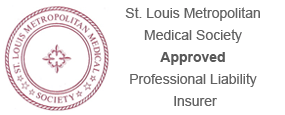Covid-19 has created numerous challenges to health care providers and their practices. Many practices had to change the manner in which they saw patients by limiting the number of patients on premises or seeing more patients via telemedicine. These precautions were taken to prevent the spread of Covid-19, but also out of concern for liability that may arise from a Covid-19 exposure claim. The state of Missouri has recognized some of these challenges and has passed SB 51 to provide some protection to health care providers.
On July 7, 2021, Missouri’s governor signed the Covid-19 Liability Bill into Law. This law went into effect on August 28, 2021. The Covid-19 Liability Law is intended to limit liability for Covid-19 exposure claims. Under the new law, a health care provider can only be held liable if they engage in reckless or willful misconduct that causes actual exposure and results in personal injury. These protections were extended to healthcare providers who may have altered their practices to accommodate the changing needs of patients during the Covid-19 crisis. The Covid Liability Law is found in Missouri revised statute section 537.1010, which reads as follows:
“A health care provider, as defined in the act, shall not be liable in a COVID-19 medical liability action, as defined in the act, unless the plaintiff can prove recklessness or willful misconduct by the health care provider and that the personal injury was caused by such recklessness or willful misconduct. An elective procedure that is delayed for good cause shall not be considered recklessness or willful misconduct.”
“A COVID-19 medical liability action may not be commenced in any Missouri court later than one year after the date of the discovery of the alleged harm, damage, breach, or tort unless tolled for proof of fraud, intentional concealment, or the presence of a foreign body which has no therapeutic or diagnostic purpose or effect.”
According to the act, a health care provider includes any “physician, hospital, health maintenance organization, ambulatory surgical center, long-term care facility, dentist, licensed practical nurse, optometrist, podiatrist, pharmacist, chiropractor, professional physical therapist, psychologist, physician in training, any person authorized to practice consumer directed services, personal care assistance services, or home based care, any person providing behavioral or mental health services, any person or entity that provides health care services pursuant to a license or certificate, and the respective employers or agents of any such person or entity providing health care services ….”
This statute provides liability protections to health care providers by limiting the time to bring any action (1 year) and requiring proof of more than just negligence by mandating proof of recklessness or willful conduct. It also protects against any decision to delay elective procedures out of concern over Covid-19. Health care providers should still take all necessary precautions in treating patients during the Covid-19 crisis. Health care providers should be aware of and follow any local, state, and federal mandates regarding Covid-19. They should also comply with any recommendations if provided by recognized Covid task forces and the CDC which also provides guidelines for medical practices.

